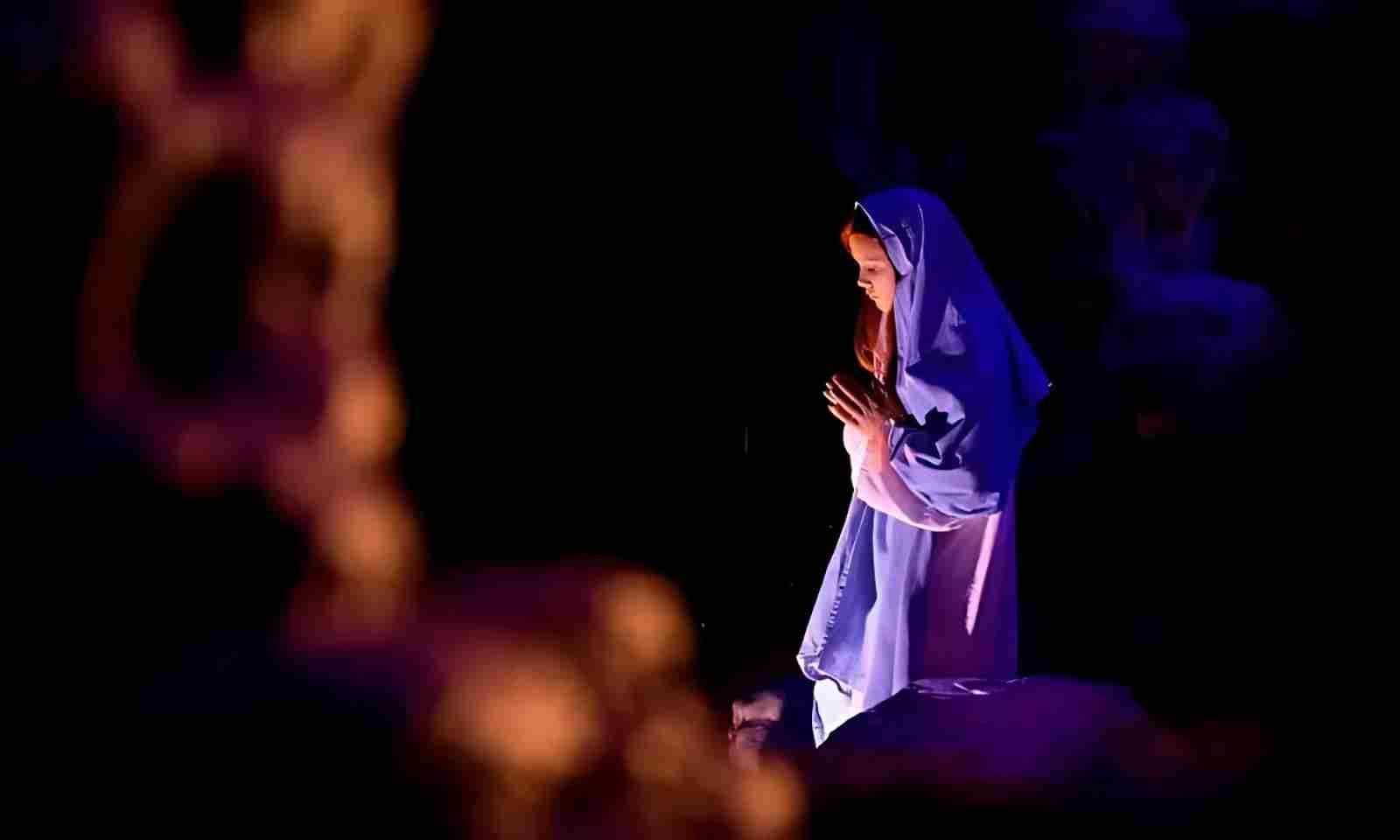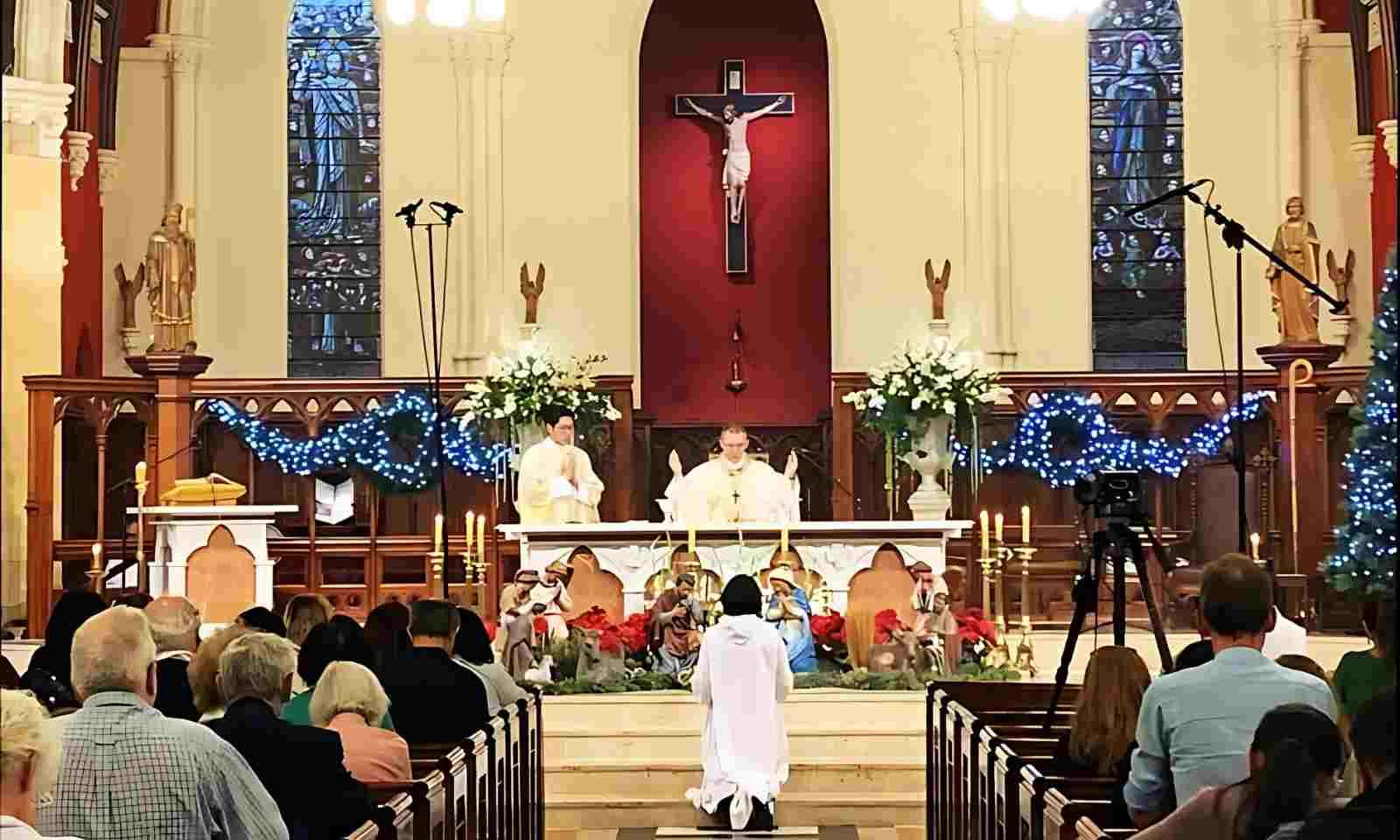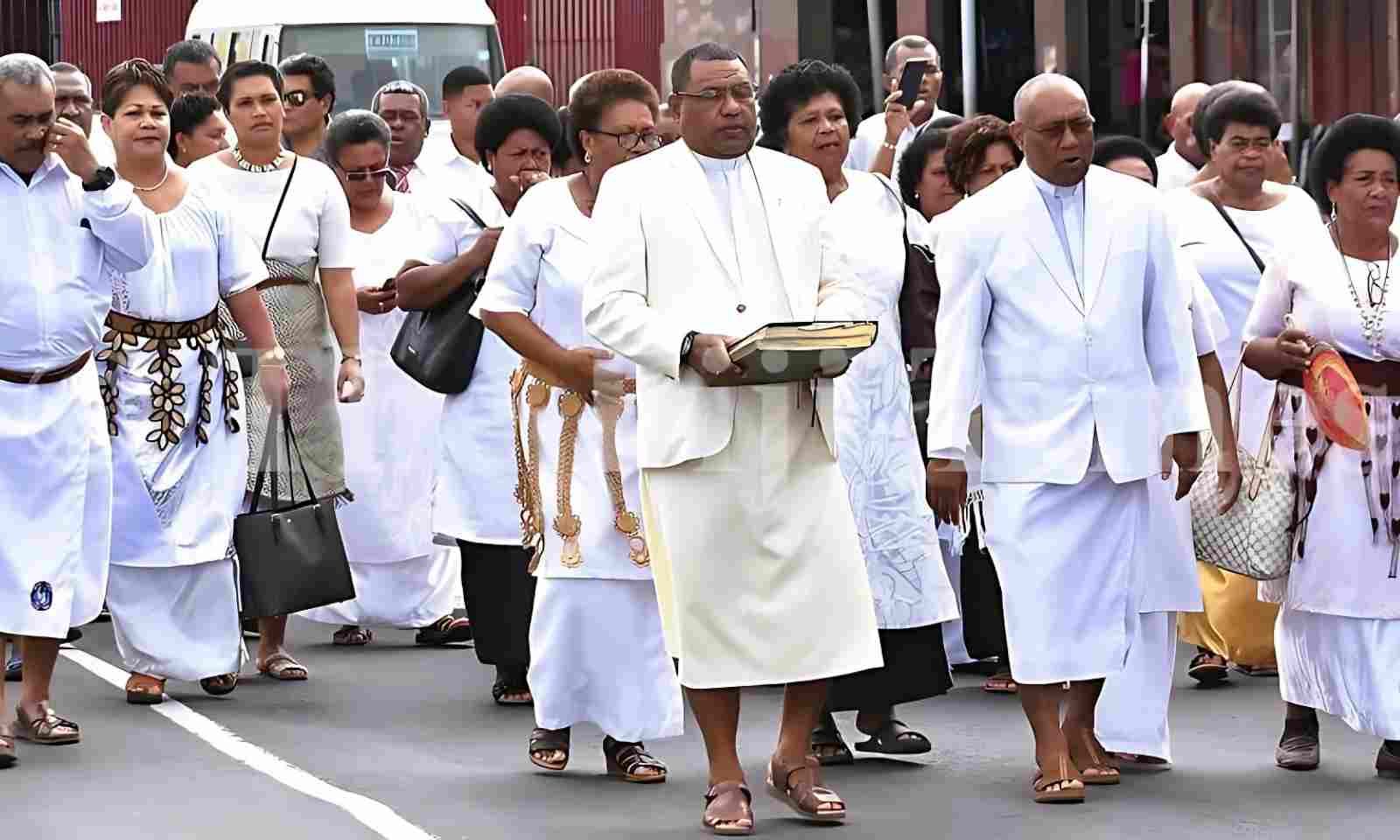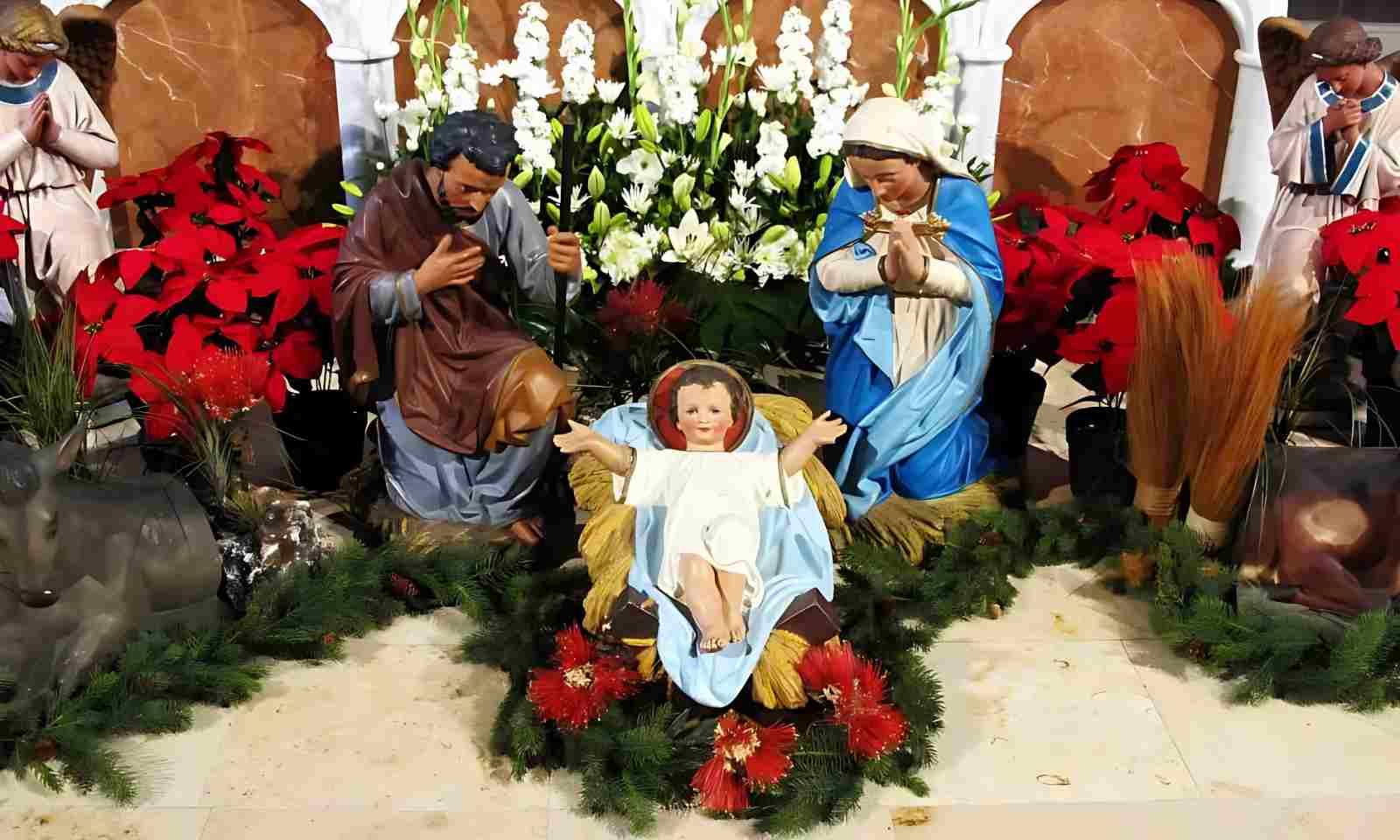

The Nativity of Jesus.
Photo/pray.com.au
Birth of Jesus: Conceived by the Holy Spirit, born of the Virgin Mary
As part of our Summer Series, we explore Christmas and the child at the heart of the celebration.



Operation Xmas Drop 2025: US and allies deliver hope to remote Pacific communities

Our generosity is our strength but we must spend wisely this Christmas - expert

Heading off on a roadie? Here’s how to keep your car and whānau safe


Operation Xmas Drop 2025: US and allies deliver hope to remote Pacific communities

Our generosity is our strength but we must spend wisely this Christmas - expert
Is there a more meaningful and joyful time than Christmas?
On 25 December, Christians celebrate the birth of Jesus Christ.
This day has been important since the fourth century and is the second most significant day in the church after Easter.
The key belief during Christmas is that Jesus was born to Mary, a virgin. This belief is essential for Christians because it shows Jesus as the divine Son of God.

Mary, mother of God. Photo/vaticannews
The idea of the virgin birth may seem unusual to many people today. It doesn't fit well with modern science and isn't often mentioned in the Bible.
Rodolfo Galvan Estrada III, a New Testament professor at Vanguard University in California, says early Christians wouldn't have found the virgin birth strange.
In the ancient Mediterranean world, many stories existed about heroes born from gods, and early Christians were drawn to prophecies in the Hebrew Bible.
What the Bible does and does not tell us
The Bible mentions the virgin birth in only two gospels: Matthew and Luke, which were written a few decades after Jesus died.

On 25 December, Christians celebrate the birth of Jesus Christ. Photo/thechurchnews.com
In the Book of Matthew, when Joseph was engaged to Mary, he learned she was pregnant through the Holy Spirit.
Estrada III says the writer connects this pregnancy to a prophecy in Isaiah 7:14: "The virgin will conceive and give birth to a son, and she will call him Immanuel.”
According to Isaiah, this child would be a sign to the Jewish people that God would protect them.
Most early Christians outside Judea did not know the Old Testament in its original Hebrew. They read the Greek translation, known as the Septuagint.
When Matthew quotes Isaiah 7:14, he uses the Septuagint's term “Parthenos,” which means “virgin.” This is different from the Hebrew term “almah,” which means “young woman.”
While this difference in translation might seem small, it gave early Greek-speaking Christians proof of Jesus’ birth from the Virgin Mary.
Watch The Nativity Story starring New Zealand actress Keisha Castle-Hughes.
Was the belief in the virgin birth based on a mistranslation? Not necessarily, Estraa III says. In both Greek and Jewish thought, "parthenos" and "almah" could be similar.
The same word, “parthenos,” appears in Luke’s account. However, Luke does not mention the prophecy from Isaiah.
Instead, he describes how the angel Gabriel told Mary she would give birth even though she was a virgin.
In Matthew’s gospel, Mary is informed that her baby will be the “Son of God".
Human and divine?
For early Christians, the virgin birth helped protect Mary’s honour. It also strengthened their belief that Jesus was the Son of God and that Mary was the Mother of God.

Christmas Day is the second most significant day in the church after Easter. Photo/catholicnews
These ideas became crucial in the second century when some Christians debated Jesus’ origins: Was he human but became the Son of God after his baptism? Was he partly divine and not fully human? Or was he both fully divine and fully human?
The last idea, supported by the virgin birth, became the most widely accepted belief in Christianity.
However, the lack of discussion about the virgin birth in the early years of Christianity does not mean that Christians did not believe it.
According to biblical scholar Raymond Brown, early Christians likely did not focus much on how Jesus became human. They accepted him as the divine Son of God without needing detailed explanations.
Greco-Roman roots
The idea of a divine birth was not new when Jesus was born. Many heroes in Greco-Roman stories had similar origins.
Watch Pope Francis, head of the Roman Catholic Church, deliver his Xmas message.
For example, Perseus was born to a virgin mother named Danaë.
According to the myth, Danaë was trapped by her father, the king of Argos, who feared his grandson would kill him. The Greek god Zeus turned into golden rain to approach her.
When Danaë gave birth to Perseus, they escaped, leading him to become a famous hero who killed the snake-haired Medusa. Perseus' great-grandson, Hercules, was also known for his strength.
The playwright Euripides told the story of Ion, whose father was the Greek god Apollo, who raped Ion's mother, Creusa, and she abandoned him.
Eventually, Ion learned of his divine father and became a founder of various Greek cities.
Legends say that Zeus was the father of Alexander the Great, a Macedonian ruler who conquered a large empire before he was 33 years old.

Fijian Methodists celebrate the arrival of Christianity to the country 188 years ago. Photo/The Fiji Times
These stories claim that Alexander was conceived the night before his mother married the king of Macedon. It was said that Zeus struck her with a lightning bolt from heaven, which made her pregnant.
King Philip, of Macedon, raised Alexander but suspected something unusual about his birth.
Familiar type of hero
Divine birth stories were common in the ancient Mediterranean world.
By the second century A.D., Justin Martyr, a Christian theologian, said that the idea of a virgin birth wouldn't seem strange in cultures that knew Greco-Roman gods.
Martyr urged the Roman emperor Antoninus Pius and philosophers to accept the Christian belief in virgin birth, just as they accepted stories about Perseus.
Ancient Christians are familiar with the idea of a god participating in the birth of a child destined for greatness.
Early Christians saw a prophecy in Isaiah 7:14 as proof that Jesus had a divine origin, which was foretold in their scriptures.
Albert Mohler, an American author and president of the Southern Baptist Theological Seminary in Louisville, Kentucky, says, "This much we know: All those who find salvation will be saved by the atoning work of Jesus Christ - the virgin-born Saviour.
"Anything less than this is just not Christianity, whatever it may call itself. A true Christian will not deny the virgin birth."
For Christmas church services this week: Catholics, click here. For Anglicans, you can find them here. Westgate Baptist Church. City Impact Church. Christmas at Life.

Photo/RNZ